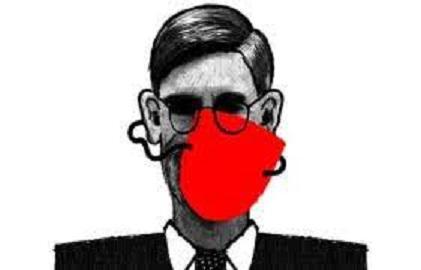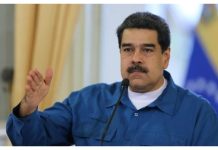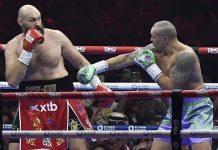Africa-Press – Lesotho. After days and weeks of to-ing and fro-ing, on January 20, 1986, leaders of the Lesotho Paramilitary Force overthrew Prime Minister Dr Leabua Jonathan’s government and ended the tyranny that had begun in 1970 and had become even more brutal over the years, particularly after 1979.
The coup was met with two reactions. On the one hand, some of those who were in power at the time cried foul and complained that the paramilitary had no business meddling in politics.
The most known complaint of the time was that those who had staged the coup had betrayed the Prime Minister. On the other hand, a much more visible and general reaction and mood was one of relief and jubilation.
Even some who had been staunch supporters and beneficiaries of the tyranny were in the forefront among celebrants on the streets of Maseru. Where those in power at the time complained of paramilitary’s meddling and betrayal, for a while, the general public felt relieved from tyranny.
One of the common refrains of the time that was used to describe the action of the paramilitary was that Basotho had been saved and relieved from the yoke of tyranny by miracle.
It may be well to remember this today, as we hear Lesotho’s security agencies speak about protecting Basotho from MPs who messed the nation up — matono-mapesa.
And it may be well to remember this today, as we hear politicians cry foul, saying these agencies have no business meddling in politics. Almost certainly some of these MPs rejoiced at the paramilitary’s removal of tyranny in 1986.
It may be said that there are differences between how Basotho had been ruled in the period from 1970 to 1986 on the one hand and the manner in which the nation has been ruled from 1993 to date, on the other.
However, it is arguable that there are also important similarities. And it is not sophistry to suggest that there are important similarities between the types of rule of 1970 to 1986, on the one hand, and the rule of 1993 to date, on the other.
The suggestion is not sophistry because from a qualitative point of view during both periods of rule society was and is still ruled in a tyrannical manner that takes forms of society’s marginalisation from political power, and society having only a limited say in how they are ruled every five years.
Even before Amendment 9 — which is the source of our current woes — Lesotho’s constitution could hardly be described as a people’s constitution. It is best described as a political elites’ constitution.
It is a constitution drafted by the elites to advance and safeguard their interests, and it provides only limited and highly qualified society’s participation in how the country is governed.
It is this elitist constitution that forms the basis of the MPs’ criticism of utterances of security agencies. Critics include politicians who, less than 10 years ago, were orchestrating and justifying the security agencies’ acts of brutality against society.
Lesotho MPs deepened marginalisation of society from power even further when on their own and without consulting society they proposed and passed the notorious Amendment 9. It is that Amendment which puts us where we are today.
The Amendment was proposed and passed to remove Prime Minister’s constitutional power to ‘threaten’ elections when MPs propose, and pass, motions of no confidence against a sitting government.
In this way, MPs guaranteed themselves five-year tenures in Parliament. To MPs, what is even nicer about Amendment 9 is that MPs can propose and pass motions of no confidence without any political risk to their tenures, incomes, and perks.
The constitution gives Basotho no remedy to opt for when, as even MPs now accept, MPs use parliamentary procedures to pursue personal and group interests at Basotho’s interests.
Thus, for five years, Basotho can do nothing to MPs when they decide to mill around in parliament in pursuit of their own interests. We have no way of testing or showing support for either side to the ongoing dispute.
This makes possible wild and unproven statements by opposition MPs that because ruling party’s MPs have joined opposition MPs, this means that the ruling party has lost following.
We do not know that. And Amendment 9 makes it impossible to test this assertion. Indeed, the majority of MPs would not want the assertion to be tested.
When done properly, democracy is risky for politicians. Trying to do it cheaply has given us a faulty product in the form of five-yearly tyranny that our system has been turned into.
It is for these reasons that the manner in which Basotho are ruled today can still be described as a five-yearly tyrannical rule by the political elite.
As in the period of 1970 to 1993, using parliament as their base, and parliamentary procedures as their means, MPs pursue their own group and individual interests as well as the interests of their families, friends, and cronies.
And, for five years, Basotho can do nothing about it. The MPs justification for closing Basotho out through Amendment 9 is that elections are expensive. Allowing society to decide who rules them is expensive.
The reasoning is fig leaf cover to hide the fact that MPs fear testing support for themselves and their actions among the electorate each time they propose and pass motions of no confidence. Again, when done properly, democracy is expensive.
Also, by some reckoning, and regardless of quantities of monies spent, it must be more affordable to consult the electorate than to support a close to 150-member parliament whose members vote themselves more and are awarded increased perks all the time.
To end, the MPs’ criticism against security agencies’ utterances on the basis of the constitution sounds hollow because we know it is not based on principle; rather, their criticism is based on what is convenient, or inconvenient, at a particular moment and whether or not they are in power.
On one hand, political elites worry that security agencies are violating their constitution. On the other, and as chiefs of security agencies must know, as members of society, regardless of what our elitist constitution says, we get filled with fear when security agencies support governments.
And the reasons for this fear are known. What we ask is that at all times society must be able to express themselves against the five-yearly tyranny of the MPs and political elites without fear from any source and society must be allowed to relieve themselves from elite tyrannical rule.
Source: The post
For More News And Analysis About Lesotho Follow Africa-Press






